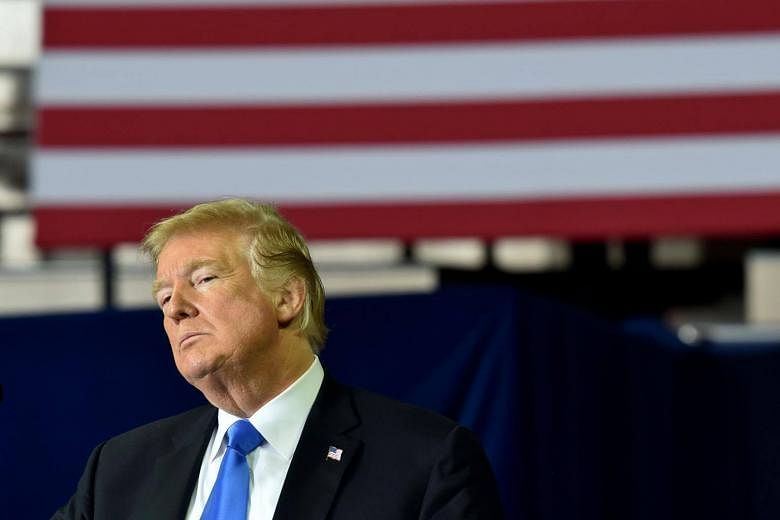WASHINGTON (WASHINGTON POST) - The Trump administration formally launched trade talks with the European Union, Britain and Japan on Tuesday (Oct 16) as the President looks to expand his "America First" trade policy.
United States Trade Representative Robert Lighthizer sent Congress three letters on Tuesday notifying lawmakers that Mr Trump and his team are going to negotiate trade deals with those governments.
The move was widely expected - Mr Trump has been discussing trade with EU, British and Japanese leaders for months.
But giving notice to Congress signals an intent to make wide-ranging free-trade agreements with those countries and a commitment to keep pursuing deals around the globe, even as Mr Trump escalates his fight with China.
The aim is to "address both tariff and non-tariff barriers to achieve fairer, more balanced trade", Mr Lighthizer said in the letter.
Mr Trump says that the US has been taken advantage of by its trading partners and that tough tactics, including tariffs, will bring other nations to the negotiating table.
He has been emboldened to continue his trade agenda and tactics after finalising a new trade agreement with Canada and Mexico last month.
If Mr Trump can reach a deal with Japan, it would mark the first free-trade deal between the world's first- and third-largest economies.
Under former president Barack Obama, Japan and the US attempted to finalise the Trans-Pacific Partnership (TPP) trade deal, but Mr Trump pulled the US out of the TPP in his first week in office.
Japan agreed to commence talks for a bilateral trade deal with the US at the end of September.
Mr Obama also tried to finish a major trade deal with the EU before leaving office, but both sides were not able to complete it. US trade with the EU supports 2.6 million American jobs, according to the Commerce Department.
Mr Trump has slapped tariffs on steel and aluminium imports from the EU, Britain and Japan and has threatened to put tariffs on car imports. Germany and Japan are both major players in the US auto market.
Mr Trump says he is using the tariffs to get leverage in the trade negotiations, but the affected nations see them as an affront to their long friendship with the US.
French President Emmanuel Macron went as far as to say Europe will not negotiate "with a gun at our head".
Commerce Secretary Wilbur Ross met European Trade Commissioner Cecilia Malmstrom this week as the two sides try to advance trade talks.
The Constitution gives Congress oversight over trade, but lawmakers typically delegate the negotiation of the details of a trade agreement to the President and his top officials.
Any deal would ultimately need the approval of Congress.
Top Republican lawmakers, who have generally supported free trade and shown frustration with Mr Trump's tariffs, praised this latest move.
"New, ambitious, and high-standard trade agreements with each of these economies would expand our ability to sell 'made in America' products around the globe and deepen our partnership with these close trading partners and vital allies," Representative Kevin Brady, a Texas Republican, chairman of the House Ways and Means Committee, said in a statement.

